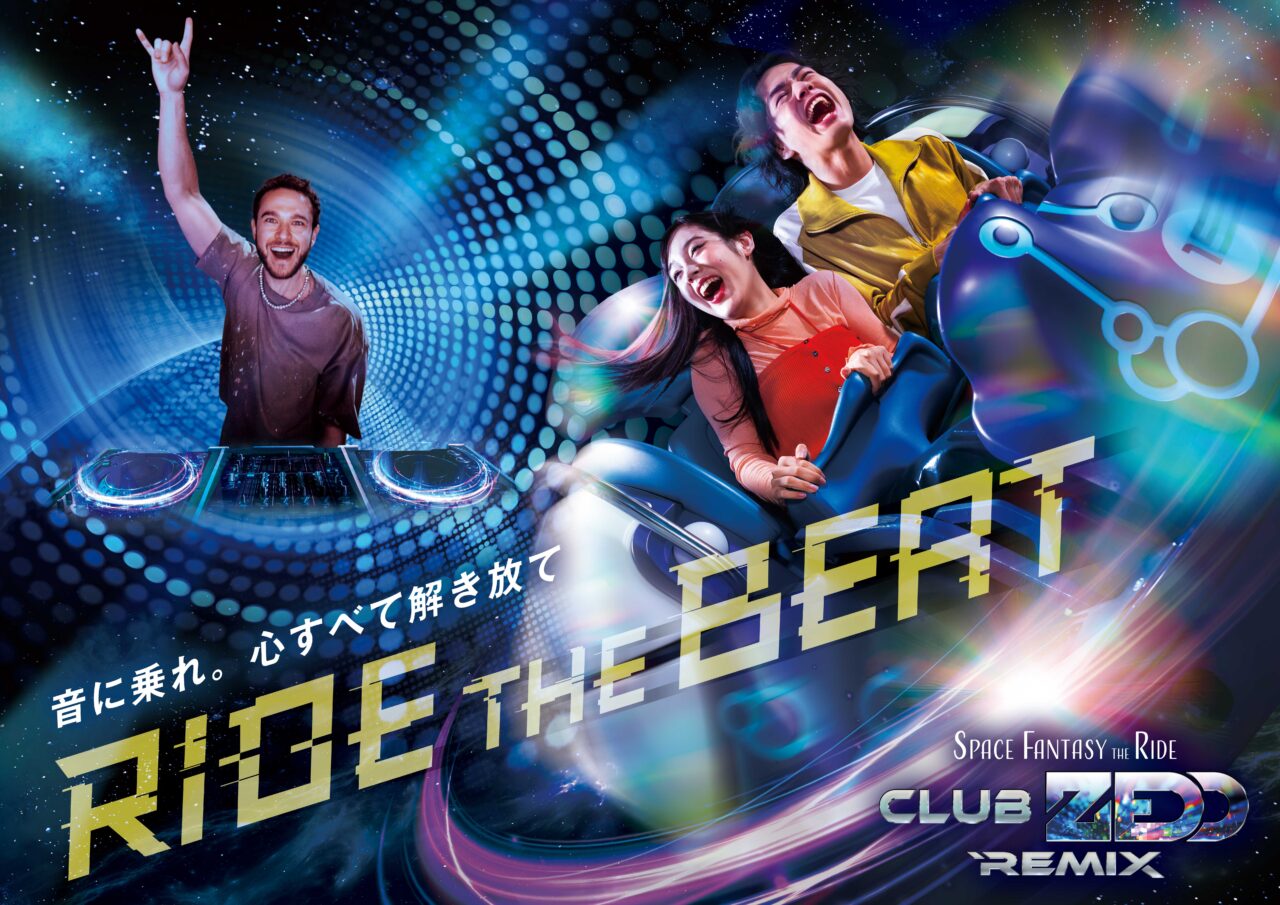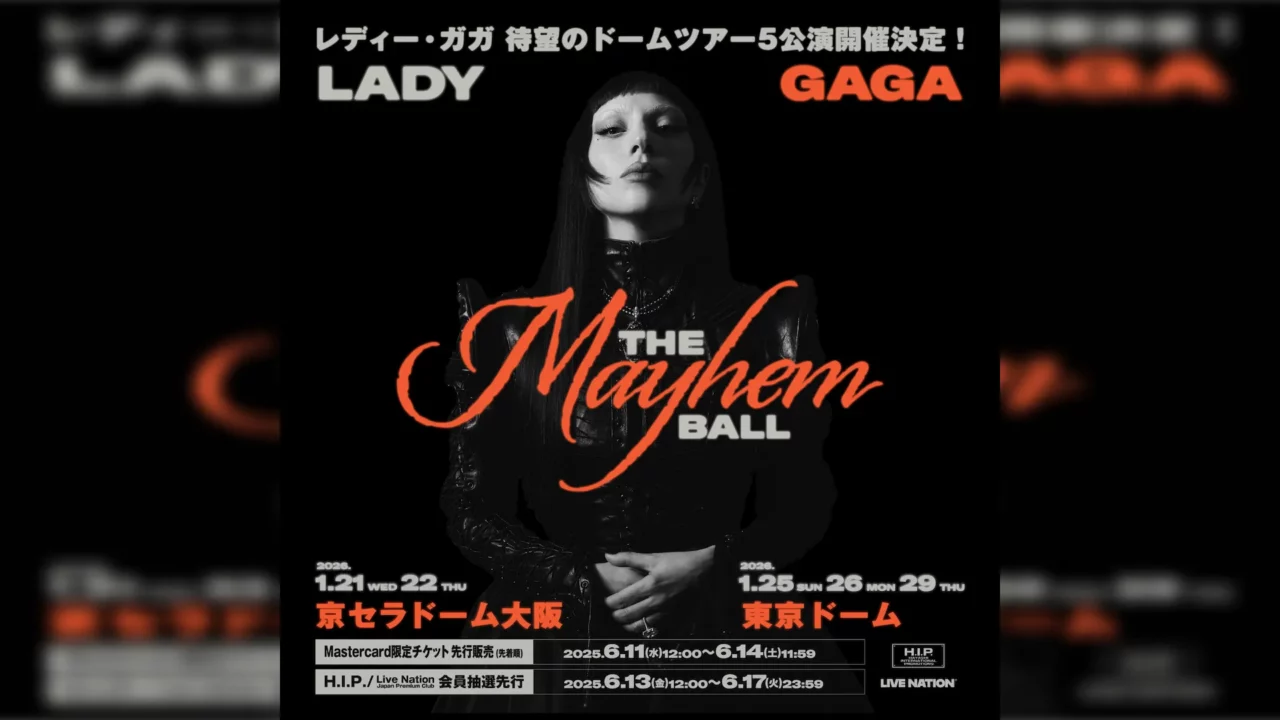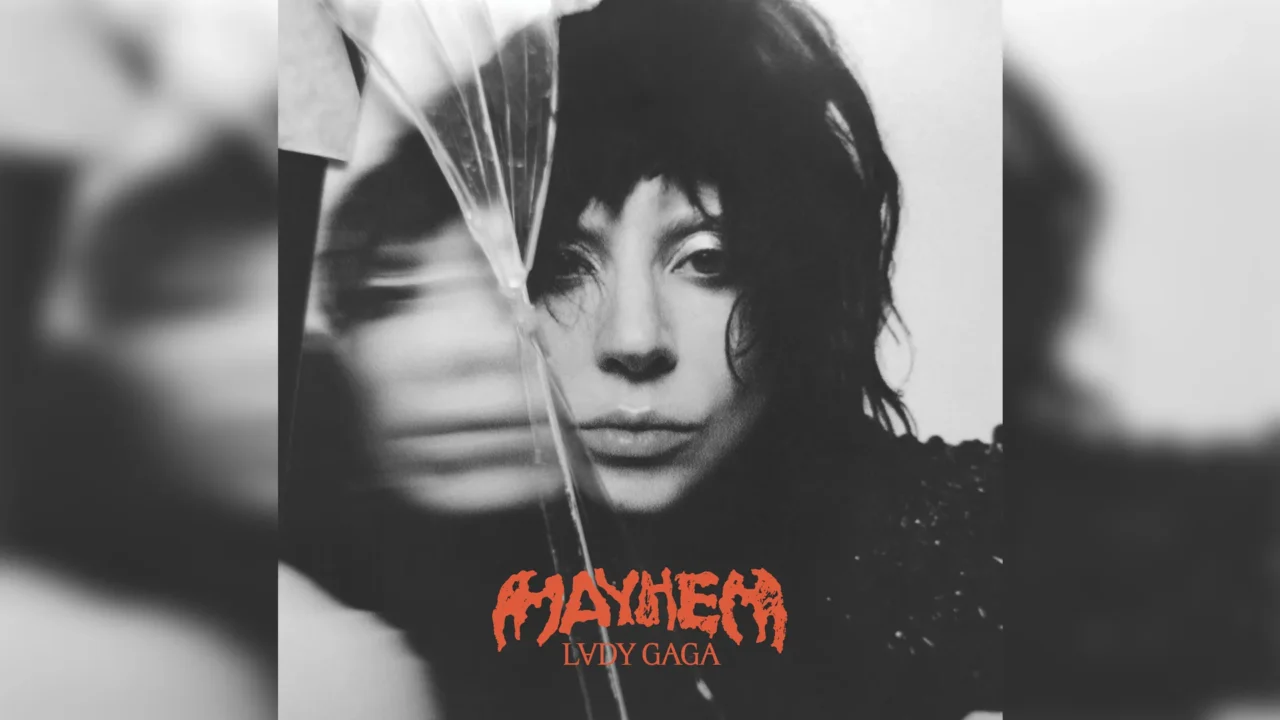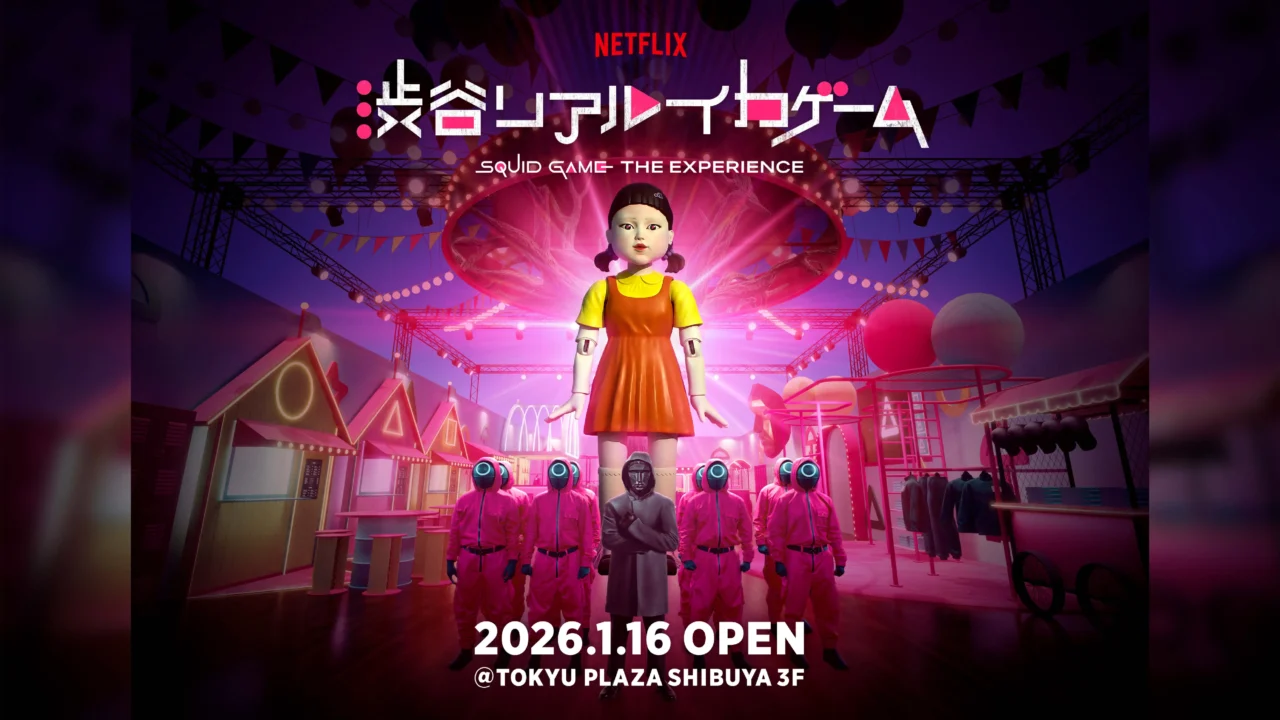Pasocom Music Club and LAUSBUB both aim broadly for “techno” and share the commonality of starting music with a friend while also working as DJs. After deepening their relationship through joint performances at each other’s events and guest appearances on tracks, the two groups held their first dialogue.
Pasocom Music Club, which released the definitive dance music album Love Flutter, and LAUSBUB, which created the experimental and expanded sound with their first album ROMP, both had rich conversations about their first impressions of each other, their latest works, the potential of locally nurtured music, and living through techno and dance music. The dialogue among the four continued without pause.
This dialogue is presented by Shoichiro Kotetsu, who is also active as a musician and filmmaker and appeared at the after-party for Pasocom Music Club’s release live.
INDEX
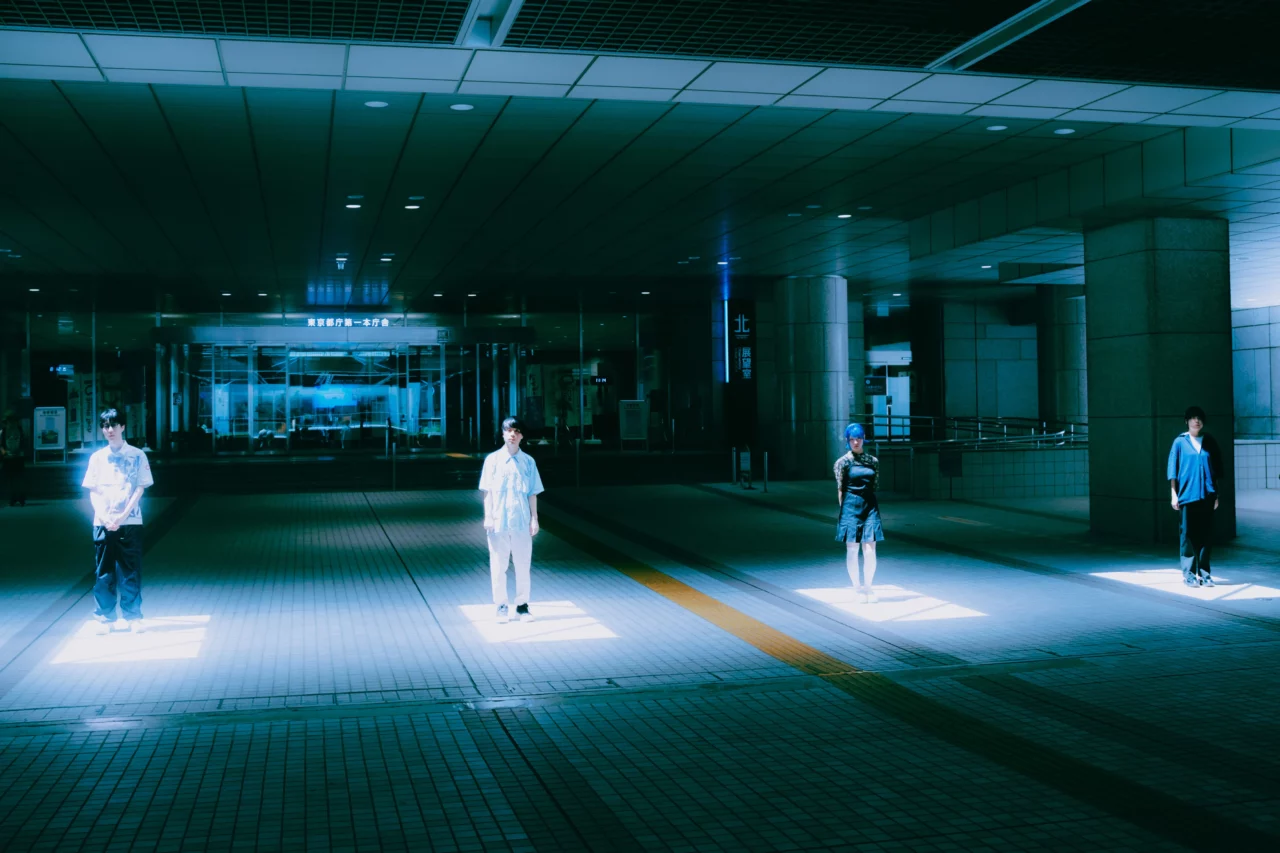
LAUSBUB’s First Encounter with Pasocom Music Club in Middle School
Despite a generational gap between the two groups, when did Pasocom Music Club first come across LAUSBUB?
Nishiyama:It’s a bit cliché, but it was when LAUSBUB’s “Telefon” went viral in 2021. I thought, “There are young people doing this kind of music now.” It didn’t feel like mere nostalgia or retroism; it seemed like something fresh and new.
Shibata: That was the timing for me as well. I was really intrigued by their look with the KORG MS-20 mini.
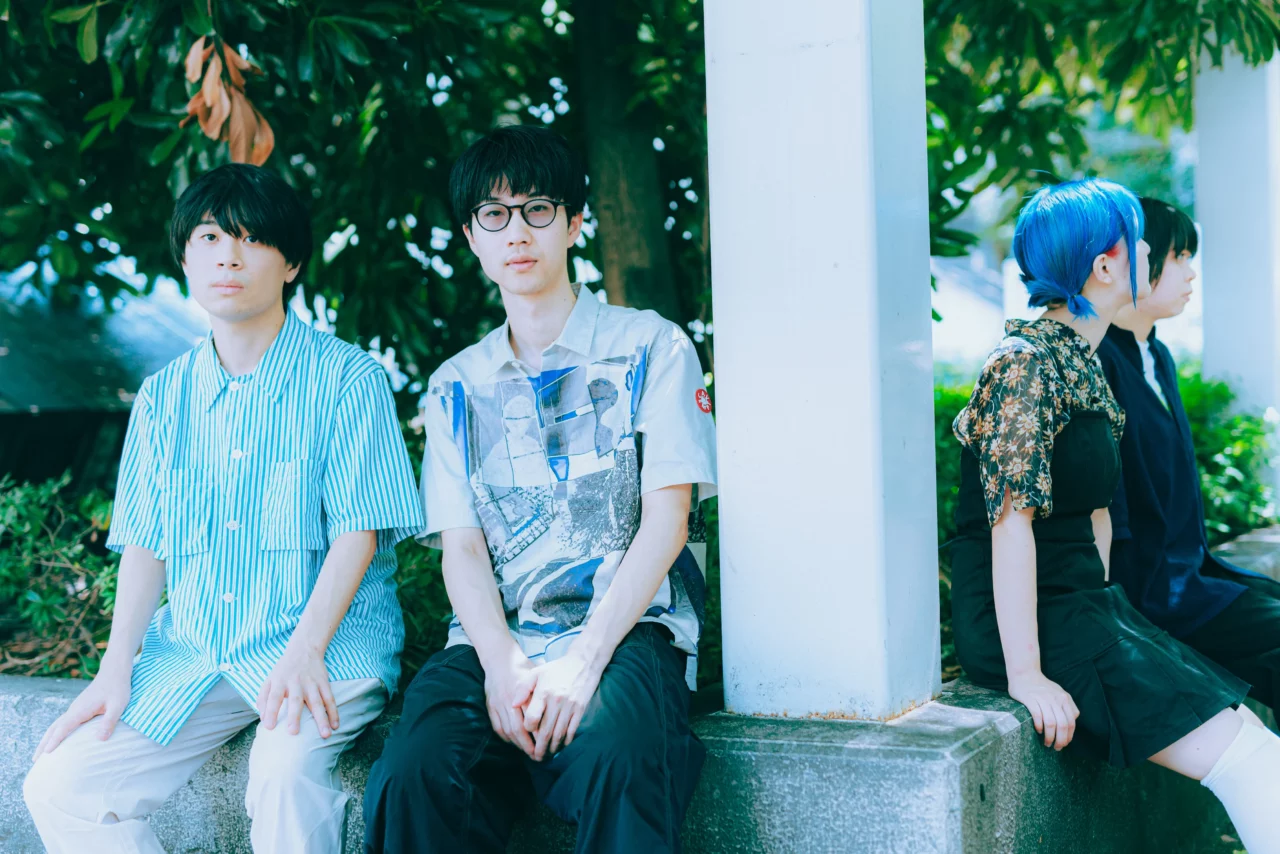
Listen to Love Flutter (Listen on Apple Music / Listen on Spotify)
When did you first hear of PaSound?
Takahashi: I first heard it in middle school. Once I started high school, Riko Iwai introduced me to genres like techno and electronic music, which made me pay more attention to it.
Iwai: I first heard it on SoundCloud when I started using Twitter in middle school. Since I was already listening to YMO at that time, I remember feeling happy to see that there were people making this kind of music in the present day.
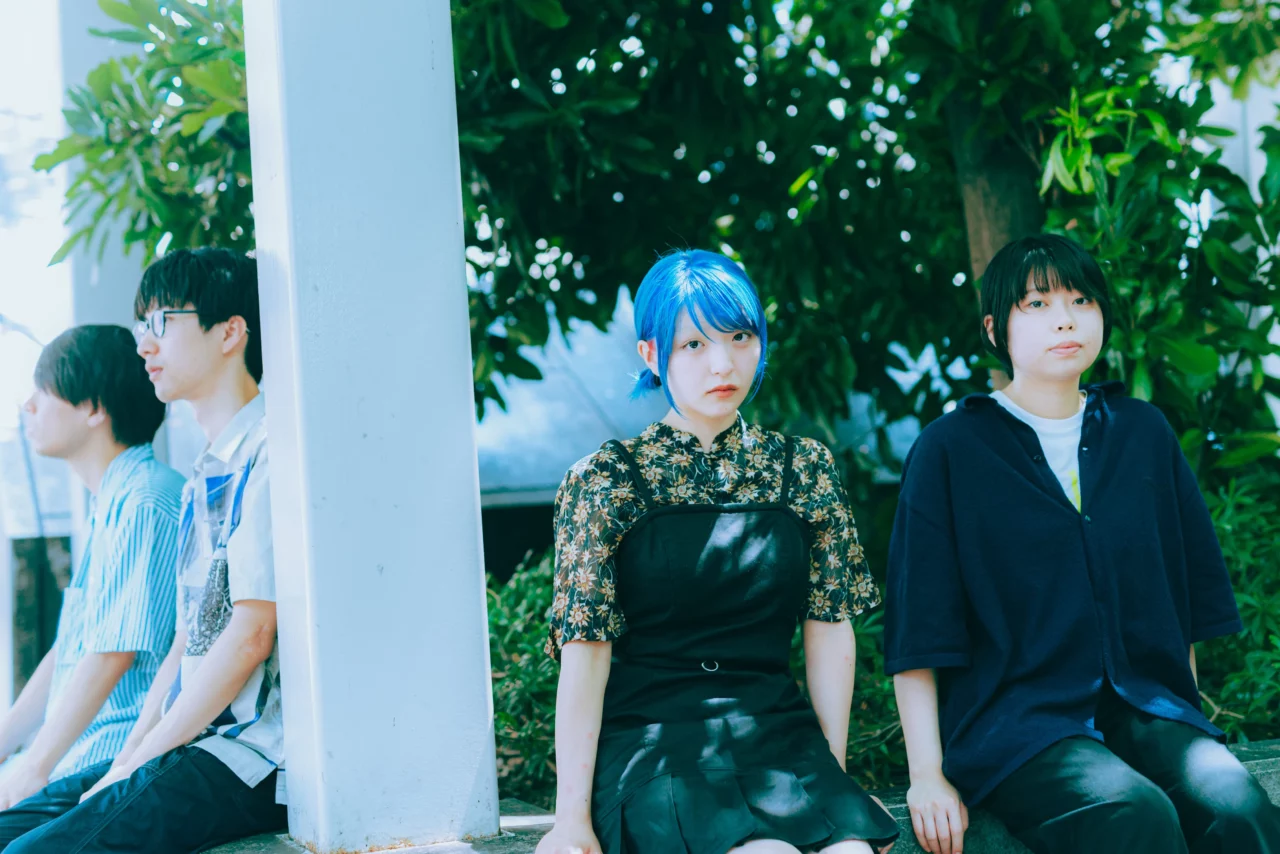
Listen to ROMP (Listen on Apple Music / Listen on Spotify)
From there, LAUSBUB emerged into the world, collaborated and performed with Pasocom Music Club, and their world continued to expand. Now, with the release of their first album “ROMP,” how did the members of Pasocom Music Club feel after listening to the album?
Nishiyama: First of all, it’s impressive how LAUSBUB has expanded their music and completed the album to this level of quality. Both Shibata and I have always wanted people to listen to our work as a cohesive album, and I was pleased to sense that same intention in “ROMP.”
Shibata: “ROMP” might be broadly categorized under terms like new wave or techno, but if you listen closely, it includes elements from various genres like Latin music. I think this reflects the way the two of them approach music. Of course, new wave and techno themselves are genres that encompass a wide range of sounds.
Certainly, “ROMP” showcases a diverse range of beat styles.
Shibata: Also, there’s a sense of ‘electronics’ in it. I find the term ‘electronics’ quite appealing. For example, in DAF, there are parts labeled as ‘electronics,’ and ROMP gives me that same broad sense of music made with synthesizers and effects. It feels like it’s been a while since I’ve encountered music that evokes that general sense of “electronics.”
LAUSBUB: Thank you very much!
Note: DAF (Deutsch Amerikanische Freundschaft) is a music unit centered around vocalist Gabi Delgado-Lopez and electronics specialist Robert Görl. Iwai has previously mentioned in an interview, “I was really into DAF and even wanted to be like Gabi Delgado-Lopez at one point” (external site opens). (open external website).
From LAUSBUB’s perspective, what did you think of Pasocom Music Club’s latest release, Love Flutter?
Takahashi: Pasocom Music Club’s works always have a distinct atmosphere and concept, and this album is no different. It creates an immersive experience that draws listeners in. I’m genuinely impressed by their ability to consistently produce high-quality, cohesive work in such a short period.
Iwai: I feel the same way. If they keep producing great work at this pace, I’ll never be able to catch up…
Shibata: [laughs]
Iwai: “Love Flutter” seems to have a slightly more introspective element compared to the previous work, which I personally appreciated. In terms of sound, it features a granular texture reminiscent of Overmono and elements and trends from current electronic music similar to Mount Kimbie. It was really enjoyable to experience a work that simultaneously reflects the progression of both the modern music scene and Pasocom Music Club.
Nishiyama: Thank you for the incredibly positive feedback.
INDEX
Techno at Heart, Yet Staying True to Pop
How do the two groups describe their own music?
Nishiyama: I was once told that Pasocom Music Club seems to be avoiding genres, and I agreed with that. However, looking back, I see that ‘techno’ is a core element in our music. While “techno” can be interpreted in broad or narrow terms, if I had to describe it simply, I’d say we’re making techno music.
We aimed for “Love Flutter” to show our future direction. What we’re passionate about and striving for appears to be ‘techno,’ though I’m not sure if Shibata feels the same way.
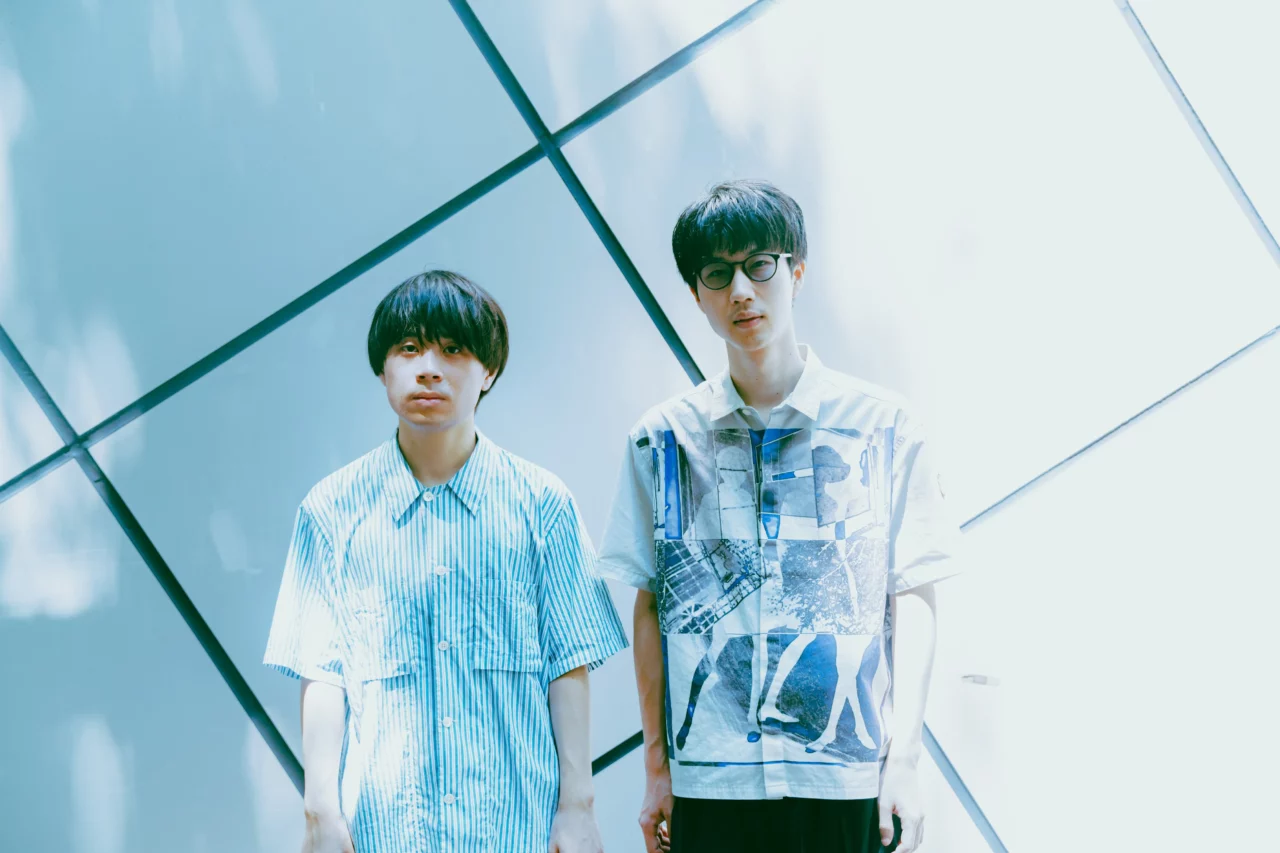
Formed in 2015, this DTM unit consists of Aoi Shibata and Manto Nishiyama, both from Osaka. They create electronic music based on a sound that makes extensive use of hardware synthesizers. In 2018, they released their first nationwide album, “DREAM WALK.” Their second album, Night Flow, released in 2019, won an award at the 12th CD Shop Awards 2020, drawing attention. They released their third album, “See-Voice,” in October 2021, and their fourth album, “FINE LINE,” in May 2023. Their fifth album, “Love Flutter,” was released on August 7, 2024.
Shibata: While I mostly agree, I think Pasocom Music Club also incorporates elements of pop music. So if someone asked about our music, I might describe it as ‘popular music created with synthesizer sounds that also features elements of dance music.
Nishiyama: So, Shibata believes that Pasocom Music Club is fundamentally pop music.
Shibata: It’s difficult to define what counts as pop music, but I do think there’s always a desire for everyone to listen to it. There’s an aspect of composing where you translate your music into something that resonates with others.
Taking all that into account, if I had to sum it up in one word, it would be “techno.” How about LAUSBUB?
Iwai: I completely agree with what the members of Pasocom Music Club are saying. I’ve recently been reminded of the broad scope of the term ‘techno.’ It seems that LAUSBUB is also engaged in translating their desired music into a pop format, similar to what Shibata mentioned. I hope to maintain that sense of balance moving forward.
LAUSBUB is often introduced as a ‘new wave techno pop band,’ isn’t it?
Iwai: We initially identified as a ‘new wave techno pop band,’ but I’ve started to feel that we’re drifting away from new wave [laughs]. It’s not quite experimental either, but when you take a step back and listen, there is a sense that LAUSBUB can still be appreciated as pop music.
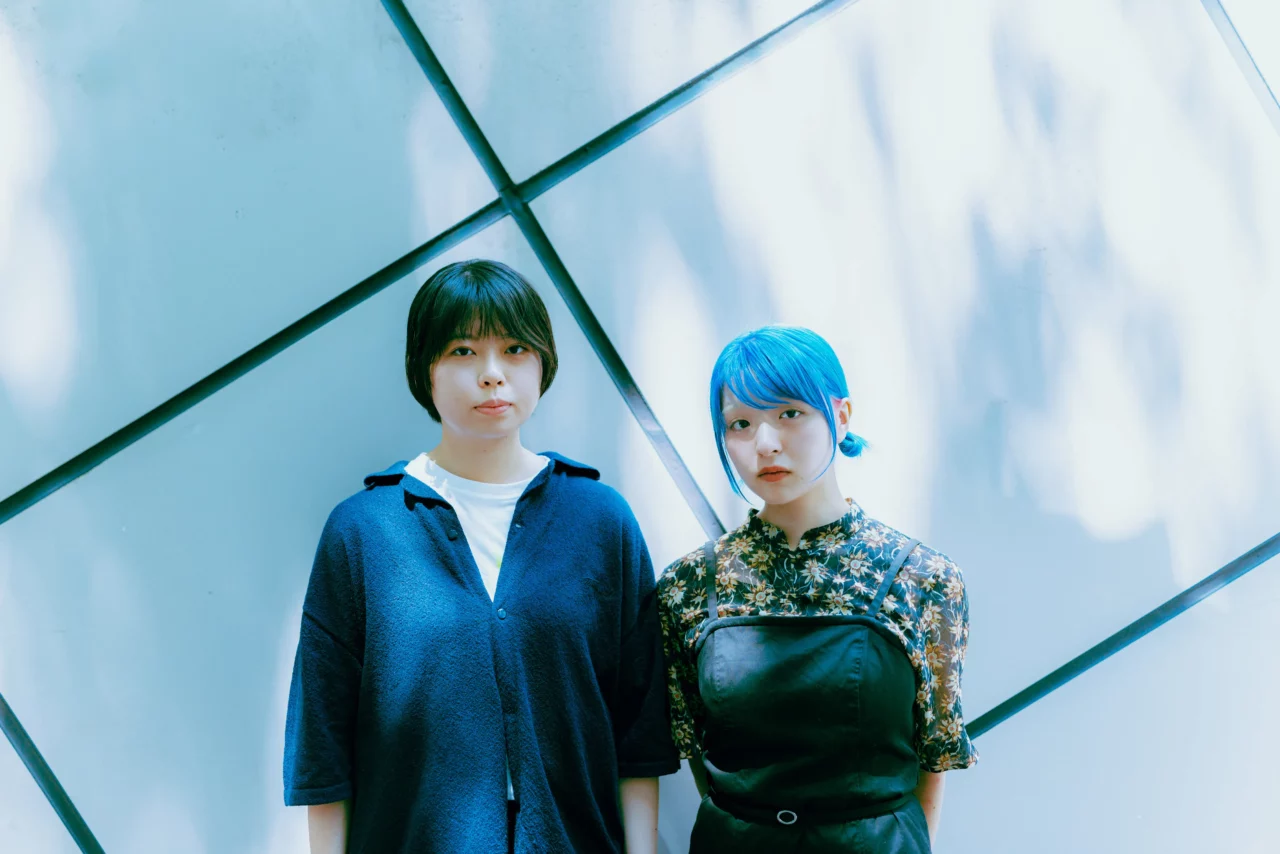
Formed in March 2020 by Riko Iwai and Mei Takahashi, who were in the same high school light music club in Sapporo, Hokkaido. They are a new wave techno pop band. On January 18, 2021, they gained explosive attention through a Twitter post and reached number one on the worldwide weekly charts on SoundCloud. They have expanded their activities, taking on roles such as hosting the original program “Far East Disco” on AIR-G’ FM Hokkaido and contributing the theme song for the Sapporo International Art Festival 2024. They released their first album, “ROMP,” in July 2024.
Takahashi: I also have a sense of uncertainty about whether LAUSBUB should be classified as new wave or pop music.
Shibata: When browsing through Bandcamp, you come across tracks that sound like they were just recorded with a sine wave, but they’re still really great. I enjoy that kind of ‘experimental progress’ music, but I also admire those who go beyond that and work on translating their music so that a wider audience can enjoy it.
INDEX
Impact of Club Culture on the Two Groups
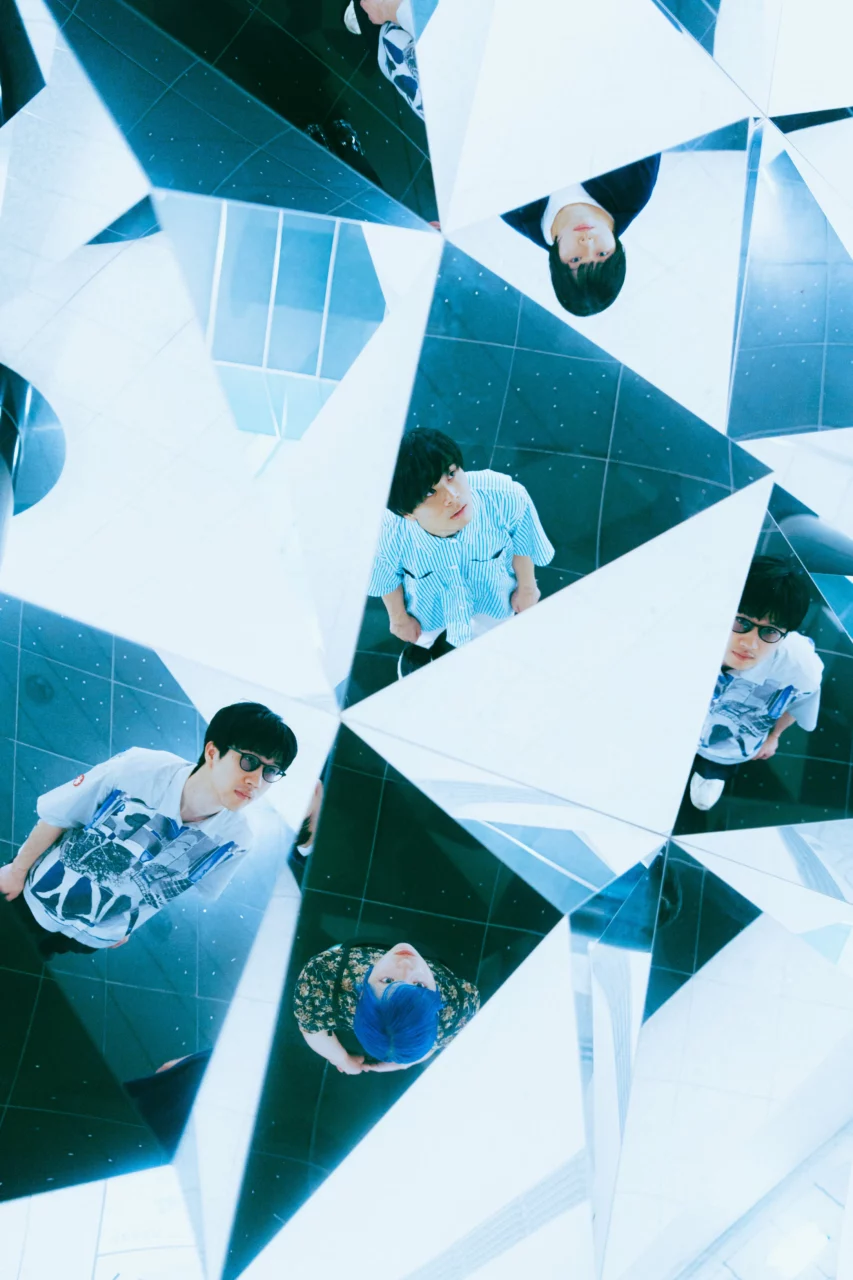
How do you view your own music in terms of dance music?
Nishiyama: I think Pasocom Music Club has gradually shifted towards dance music over the years. Initially, we weren’t very conscious of it, but since we often perform at clubs, we’re naturally influenced by DJ culture. The impact of performing in a space focused on physicality in music is significant. So, with Love Flutter, we specifically set out to create dance music.
Would you say that your experiences performing in clubs have fed back into your music production?
Shibata: As the years went by and the speaker sizes at venues grew larger, we became increasingly aware of the importance of drums and bass.
Shibata: When creating dance music, there are general rules and common principles to follow, but I also believe that everyone has their own unique sense of rhythm.
A track that I might think, “You can’t dance to this!” could be something that someone else feels, “Actually, I can dance to this.” I think there’s a personal variation in how people perceive rhythm, and that’s something I want to respect.
Nishiyama: Recently, while working together, we’ve run into situations where I have no idea when Shibata says, “This beat really makes you move” [laughs]. I think it’s a reflection of the individual differences or varying aesthetic senses that Shibata mentioned.
It seems like both of you in LAUSBUB have been getting more involved in DJing and drawing closer to club culture. Has that influence impacted your latest work?
Iwai: I think our experiences in clubs and DJing are reflected in the album. Especially after performing at club asia’s anniversary event ‘F F F’ and watching live shows by Pasocom Music Club and imai, I learned how certain sounds create specific effects with that kind of sound system. This has made me more conscious of how the music will feel when played in a particular environment, especially in a club setting.
You also DJ at clubs in your hometown of Sapporo, right?
Iwai: In Sapporo, it’s common for various music genres to come together at a single event. Being nurtured by places like Precious Hall and PROVO, which are like musical fortresses in Sapporo, has definitely influenced our own expression.
Takahashi: During the production of ‘ROMP,’ I frequently visited clubs in Sapporo. The music scene in Sapporo is really tight-knit, with people from different music communities blending together. I feel that being in such an environment is reflected in the way we approached the production.
In regional areas, where there are fewer people involved in music, different genres tend to come together more naturally. I understand this well from my own experience in Shikoku until recently. I imagine Pasocom Music Club had a similar experience in their hometown of Kansai.
Yes, that’s right. Osaka is still relatively a big city, so there was a bit more variety in genres. However, at the time, there were still few people doing music like ours on a national level, and there weren’t many people using computers for live performances. Because of this, there were only a few places where we could perform, and it often felt like we were thrown into a mix of various genres. We ended up performing alongside bands and other acts.
But in the end, this environment became a significant influence on our music. Old Osaka was a vibrant mix of indie rock, net labels, experimental music, and early lo-fi house and city pop trends. It was really stimulating. An organizer named zico was behind many of these events.
Note: zico is the organizer behind parties like POW and OZ. On December 29, 2017, the joint event POW and TØNO held at Minami-Horie SOCORE FACTORY featured performances by Pasocom Music Club, Yousuke Yukimatsu, Shokuhin Matsuri a.k.a. foodman, and Le Makeup. (open external site).
INDEX
Key Figures in Shaping Sapporo’s Local Scene
Shibata: Looking at event flyers from Hokkaido on social media, I see many exciting lineups, like solo performances by the two members of LAUSBUB and PLASTIC THEATER’s events. Even though I can’t attend, there are a lot of stimulating options.
Nishiyama: Interesting things often happen simultaneously in a region, and people from different fields might accidentally meet and create some kind of chemical reaction because there are no other venues. These moments rarely get documented, so being present for such scenes feels like a real stroke of luck.
Shibata: It’s quite fascinating that someone like loli shugo-kun, who is of the same generation and in the same Sapporo as the two members of LAUSBUB, exists.
Iwai: Loli shugo-kun recently DJed by the river using only an iPhone, which was pretty wild and inexplicable [laughs]. Everyone gets along well, though. Those local connections really do feel like a stroke of luck.”
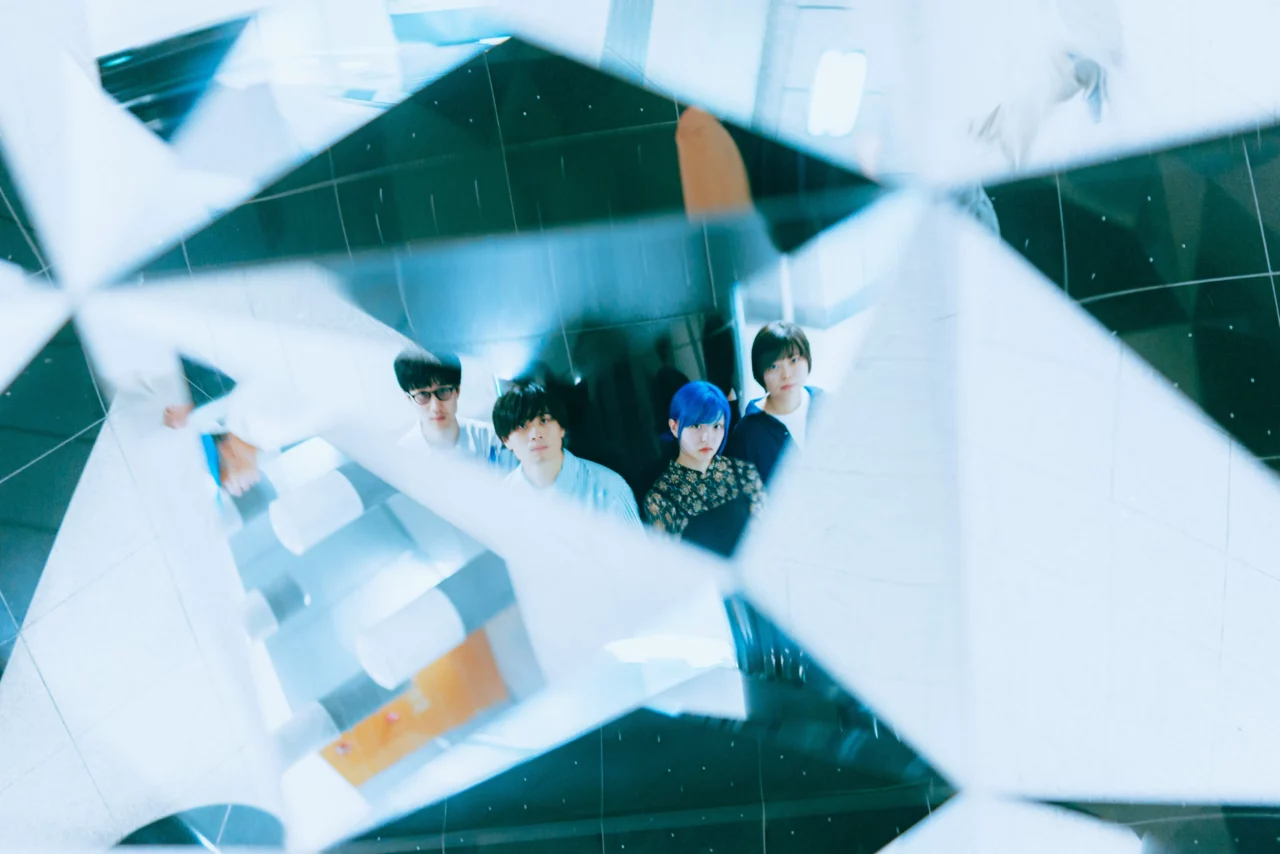
When I was in Osaka, I noticed that compared to Tokyo, there aren’t enough people in the local scene to pick and choose friends based on genres. As a result, the friends I hung out with had very diverse activities. If people don’t get along personally, you can’t really connect, so the groups tend to form around shared fundamental ideas and philosophies rather than just musical genres.
That’s why music recommended by friends, even if it’s from a genre I’m unfamiliar with, often turns out to be really good. This approach to connections allows for a broader perspective, revealing various musical values and ideas, which I think is a great benefit.
Local scenes often develop through personal connections and the places where people come together, rather than by genre.
Takahashi: Loli Shugo-kun is an example, but I think there are quite a few people in Sapporo who don’t try to belong to any particular scene but show up everywhere in a more laid-back way. When you talk to these people, you often find common ground in values and ways of thinking, and the connections that form in such interactions tend to be strong.
Iwai: In Hokkaido, there’s also an alternative band called Glans that released music through ‘Jūsangatsu.’ The vocalist, Tatsuki Egawa, is also a DJ for juke/footwork and has a unique perspective. He talks extensively about things like how being too fast can make you feel slow, or being too slow can make you feel fast (laughs). There are some truly eccentric and fascinating people like that in Sapporo.
Iwai: Also, while everyone is somewhat shy, they can be quite blunt, saying things like, ‘The performance earlier wasn’t that great.’ It seems that many of my local friends have a strong sense of commitment and aesthetics.
Takahashi: Earlier, Shibata mentioned the ‘Dento’ event organized by PLASTIC THEATER, hosted by someone named mostin fantasy. Mostin is very attuned to the Sapporo scene, and the lineup for the events often features people from completely different fields. It’s a unique and enigmatic space, offering experiences that you can only find at that particular event.
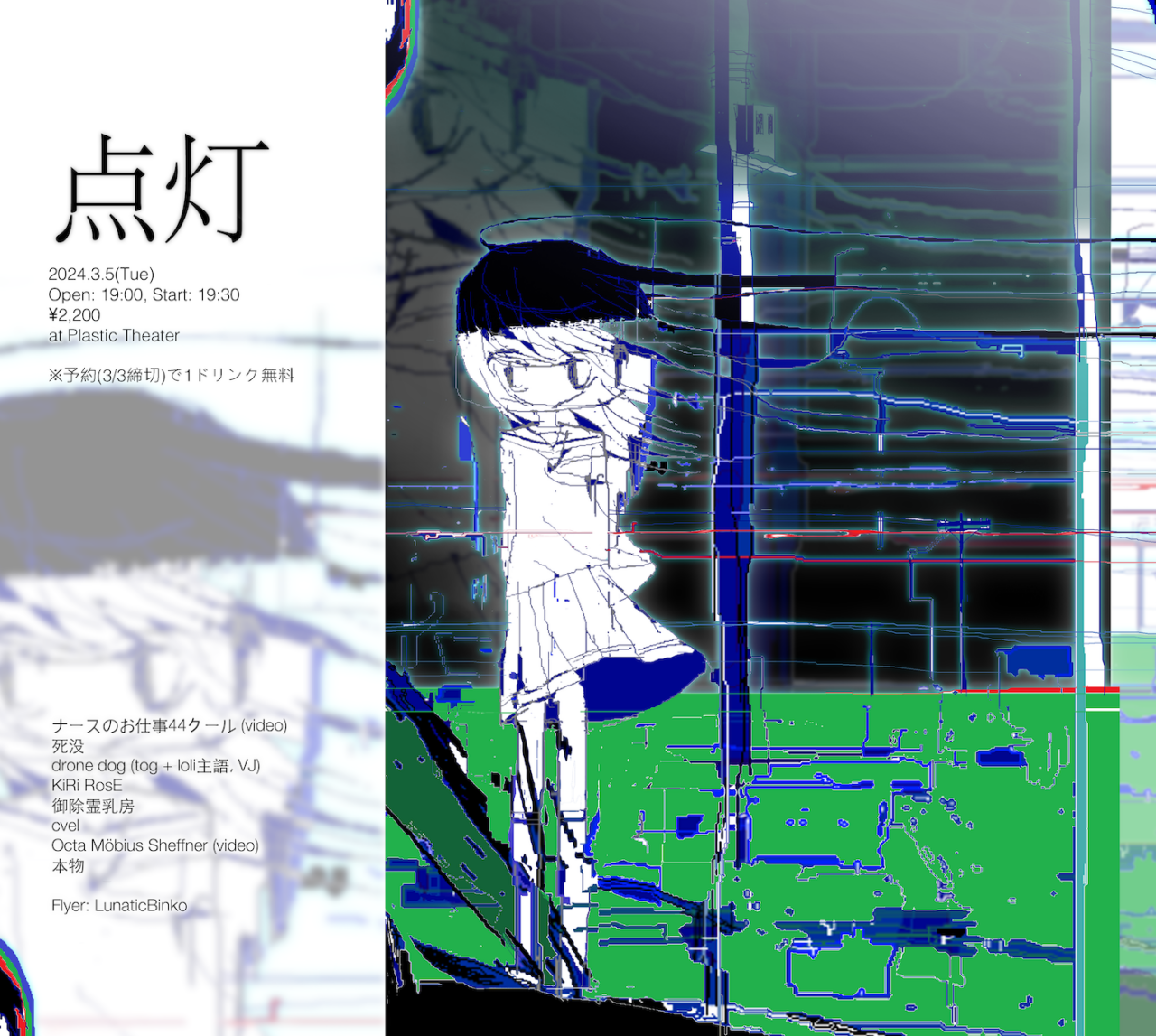
Iwai:
Mostin fantasy even attends university events and shows up to these very local events on his own. Yamada Aoi from the hatch is another key figure. Even while based in Tokyo, he is deeply involved with the Sapporo scene and is dedicated to the music community there.
We also had the opportunity to perform at ‘THE JUSTICE,’ a Sapporo event organized by the hatch. It featured MOFO from Kyoto and toiret status from Yamaguchi, attracting a diverse audience ranging from teenagers to people in their sixties. The event was unique in bringing together music across genres and generations in a single venue.
Shibata: Salon Tarememe also seems like an interesting place.
Iwai: That place is also one of the really interesting spots right now. We hosted a listening party event there, and I think it’s a venue where you can try out a lot of different things.
INDEX
Life Stage as a University Student
Given everything we’ve discussed so far, how do you feel about releasing your first album as LAUSBUB?
Iwai: It feels like this album marks the beginning of our music journey. There’s a sense of finally joining the community, but it also serves as a moment to reconsider what comes next.
With “ROMP,” we focused solely on what we wanted to create, keeping external influences to a minimum and concentrating just on the music and ourselves. Moving forward, I hope to create music that opens up more, establishing a deeper connection with listeners.
Takahashi: Creating “ROMP” has definitely changed how I think about making music and what I want to achieve. I’ve considered new possibilities and what I can do differently. I believe these insights will be valuable moving forward, so I’m eager to start working on the next album.
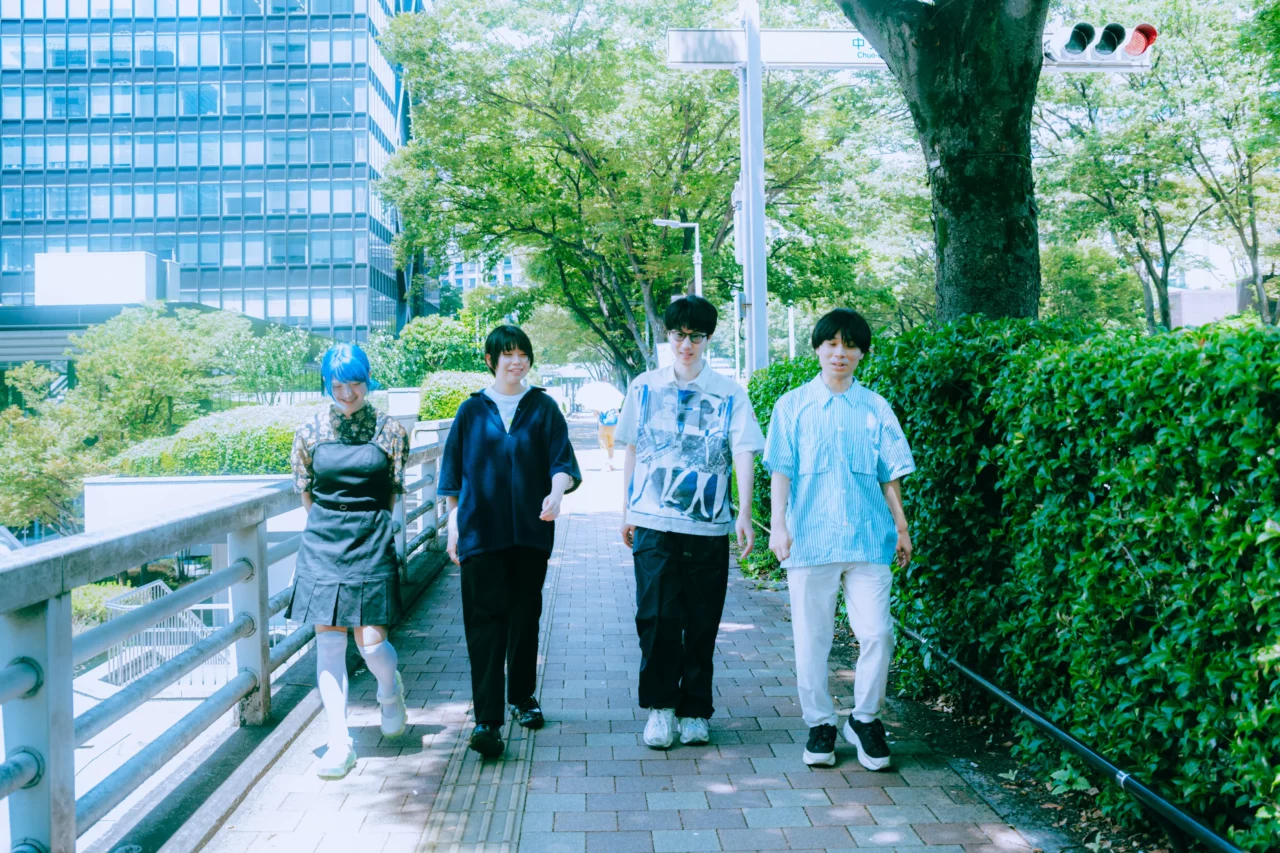
At the beginning, Nishiyama mentioned that he didn’t think he could create a work like this when he was around the same age as the LAUSBUB duo. What were you thinking about when you were at that age?
Nishiyama: You two are around 21 years old now, right? That would be during your second or third year of university… Were we already working together at that time?
Shibata: I’m not sure. Maybe we were just starting out or not working together yet?
Nishiyama: This November marks the 10th anniversary of Pasocom Music Club, at least by our own count [laughs]. When we were 21, it’s unclear if we were officially using the name Pasocom Music Club, but I had already met Shibata and we were just starting to get things going. Looking at it from that perspective, LAUSBUB has definitely gotten ahead of us.
Shibata: [laughs]
Nishiyama: I didn’t have any vision of doing music for a lifetime or becoming a professional. It was more like, “As long as I enjoy it as a hobby, that’s fine.” Also, I spent most of my time just staying at home and sleeping.
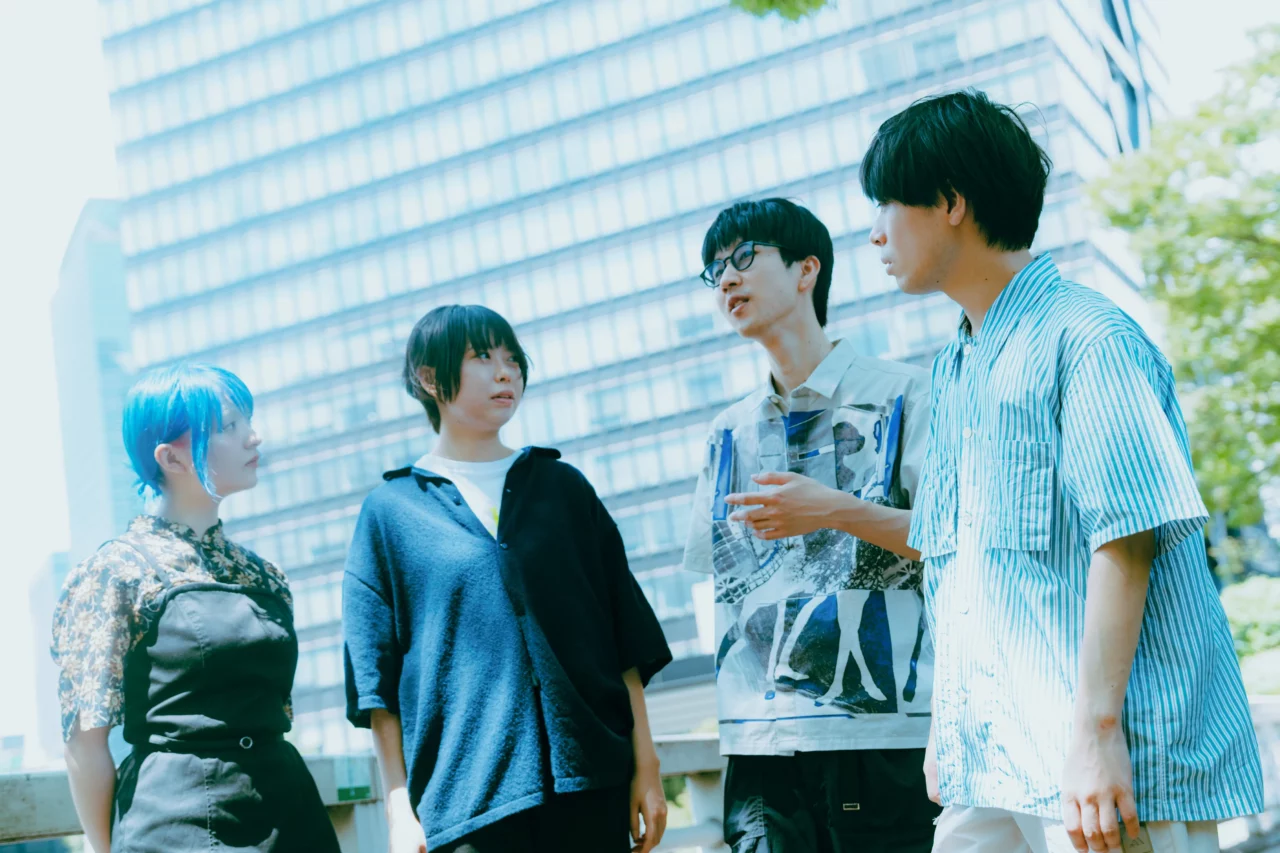
Shibata: I couldn’t reach Nishiyama-kun for about five days, and when I finally did, he said, “What have you been up to?” and his reply was, “Sorry, I was just sleeping” [laughs].
Nishiyama: It wasn’t that my mental state was down or anything, but it was a time when that kind of lifestyle was possible. Just spending the whole day on the internet, for example.
Shibata: I was a carefree student.
A few years later, the first album from Pasocom Music Club is released.
Nishiyama: The first album was released in 2018, right?
Shibata: At first, I really wasn’t thinking about anything… I didn’t have any ambitions of making it big with music; it was just one of my hobbies. It was more like a recreational activity, like when Nishiyama and I would chat on Skype and say, “We’re bored, so why don’t we try practicing making videos today?
Nishiyama: We only had the primitive enjoyment of showing each other what we created. One commonality between us and LAUSBUB might be that we both started making music with friends. Forming a band with friends is something that happens often, after all.
Do you have any tips on how to continue your activities together?
Nishiyama: The other day, I asked the group_inou duo the same question (laughs). I think this is an undeniable fact: once you make a living from music, it inevitably becomes “work.” There comes a moment when, if you start dealing with administrative matters, like incorporating the business and having Shibata as the president and me as the vice president, you can no longer remain just friends. Everyone I’ve talked to, no matter who, has said the same thing.
Nishiyama: However, I still don’t want to give up on being friends in that process. I’m currently thinking about how to manage that balance effectively.
Shibata: It’s not that we have a bad relationship [laughs], but there is definitely pressure. Everyone experiences it, so I guess it’s just part of the process.
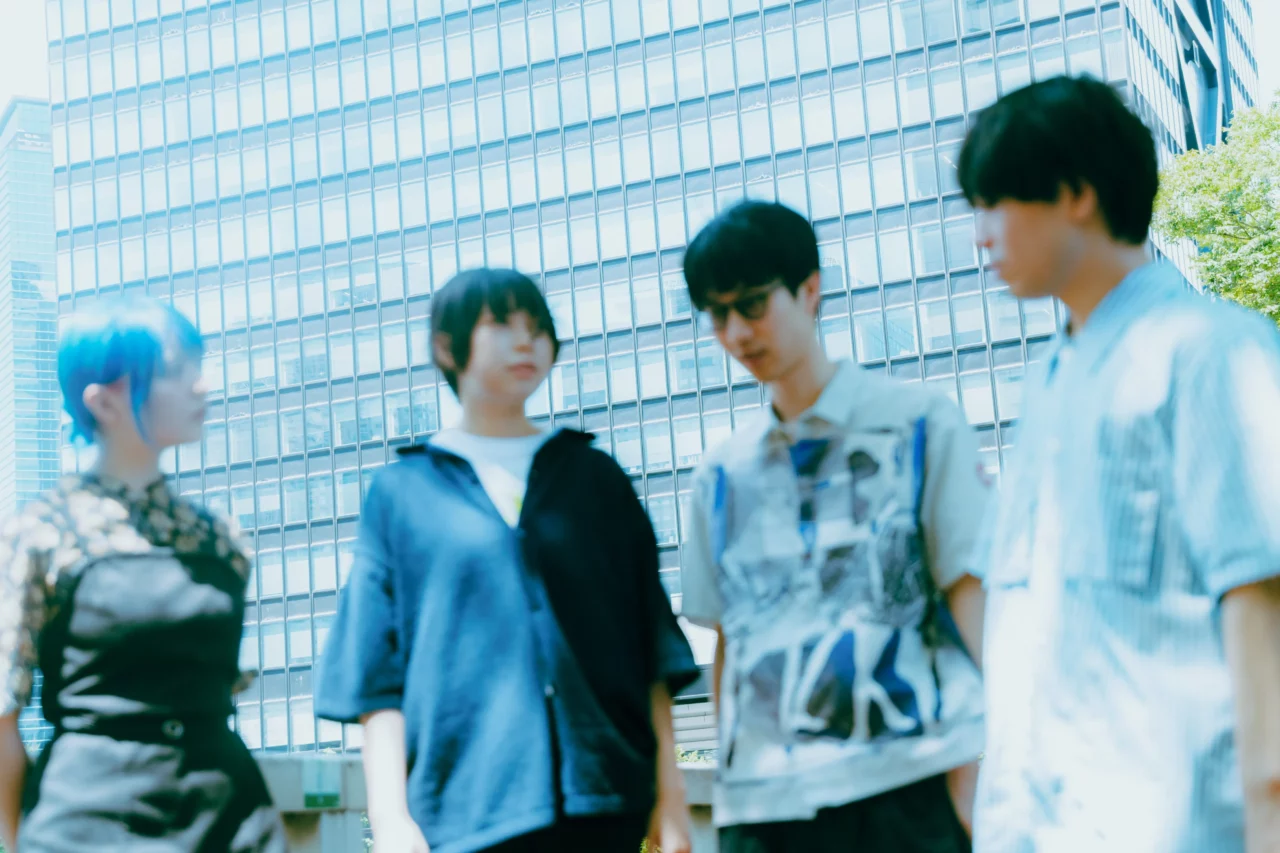
Nishiyama: The fact that we initially decided to “do everything ourselves in the indie scene” is also significant. We’re still friends, and it’s just something we talked about because it came up. It’s not really that heavy.
Iwai: At the moment, I still feel like it’s just a matter of “playing in a band with friends.” For me, I’ll manage to get by no matter what, but I do hope that Mei-chan can eventually make a living from it.
Everyone: [laughs]
Nishiyama: As we go through different stages in life and each person’s situation changes, even if I want to keep doing something extremely alternative, there’s still the need to make a living. It’s a different story from the early days when we were driven purely by initial enthusiasm. We’ll move beyond just doing what we love with friends and start having discussions as business partners.
Takahashi: The idea of not giving up on staying friends really resonates with me. As long as we’re working together, I think there are things we can do to ensure we can remain friends.
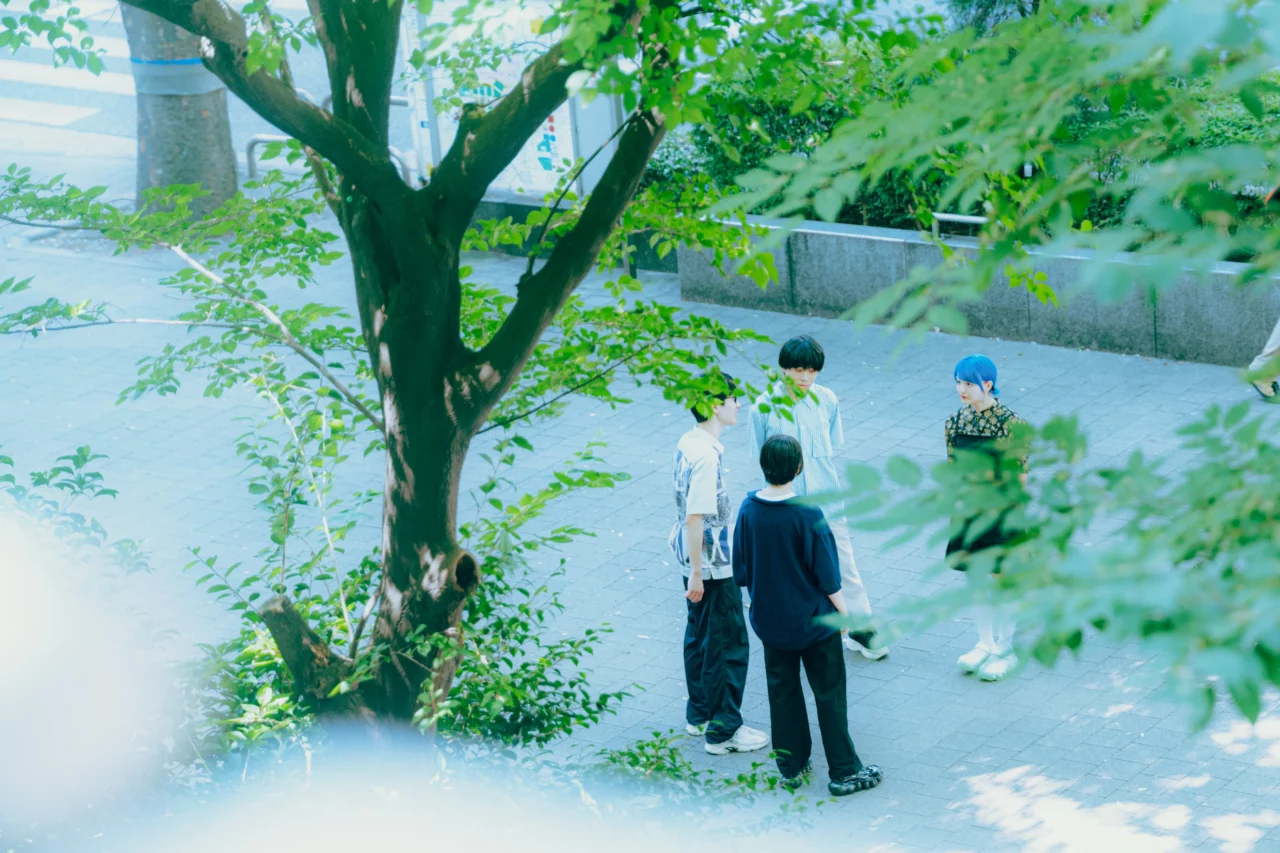
INDEX
Making “Japanese Lyrics” Stand Out in Electronic Music
I’d like to ask about Pasocom Music Club’s album. Takahashi-san, you continue to participate as a vocalist in “Drama” for this new release, just as you did in the previous album (“FINE LINE,” released in 2023), correct?
Takahashi: For “Day After Day,” it was my first time participating as a featured vocalist, which was really nerve-wracking. It was a valuable experience that gave me a chance to understand my role within the song and how to approach singing from an objective perspective.
This time, with “Drama,” I feel that the vocals have a stronger presence as a hook in the song. I was happy to sing a track related to the album’s theme, “The Rustle of Love,” which involves childhood memories and children’s voices.
Nishiyama: Both Shibata and I truly think that Mei’s voice is fantastic, and we’ve always wanted to work with her again. With “Love Flutter,” we wanted to present it more as a “dance music album” compared to the previous one, and we aimed to emphasize the beat over the vocals.
For “Drama,” we wanted to create a sense of space and make the arrival of the vocals feel even more beautiful. The track is inspired by the concept of Electric Groove’s “Niji”—creating a cathartic moment when the vocals finally come in. Mei has a remarkable ability to convey that sense of release and pleasure with her voice, so I feel “Drama” fits really well and I’m quite pleased with it.
Iwai: “Drama” felt like a new experience for me, different from the way vocals are used in LAUSBUB, and it was very stimulating. It offered a fresh perspective on how vocals can be integrated into dance music.
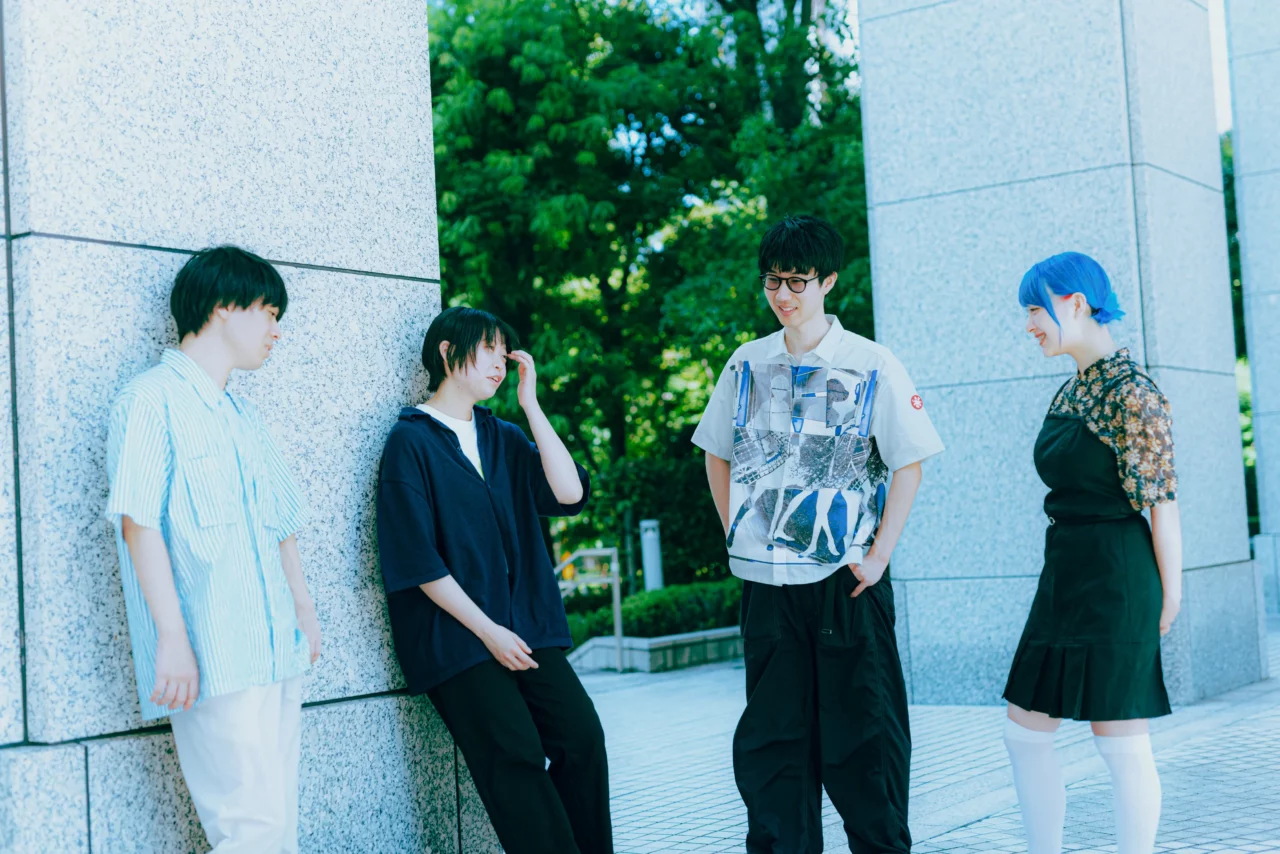
With “Child Replay” featuring Satoko Shibata and “Yuragi” featuring tofubeats, the album showcases a particularly memorable flow of vocals. How do you balance “dance” and “vocals” in these tracks?
Nishiyama: For these two tracks, they were definitely created with a focus on pop and “vocals.” I see both Satoko Shibata and tofubeats as “singer-songwriters” with personal sensibilities that I wanted to feature.
While placing emphasis on the “vocals,” I still wanted them to be pop songs within the context of “dance music.” Recently, I’ve been considering reducing the amount of “vocals” in our music, but for these two tracks, I intentionally increased the vocal presence.
Nishiyama: Also, there’s the inherent difficulty in putting Japanese lyrics over dance music. I often think about “What is Japanese music?” and it’s not just about whether it has Japanese melodies or not. It’s more about how much music created by Japanese people, deriving from Japanese origins, actually exists.
So, whether to sing in English or not—many have experimented with this historically. Nowadays, especially, people are trying various approaches to find their identity through their music.
Indeed, with Latin American pop music like reggaeton dominating the charts and K-POP global hits symbolizing the trend, the widespread use of streaming services has made it possible for anyone to access music from around the world. As a result, there’s been a heightened awareness of how to incorporate regional and national identities into one’s own music, which feels like a different dimension from nationalism.
Nishiyama: In Japan, it’s true that we’ve been incorporating and reinterpreting imported music for a long time. Very few people would listen to traditional Japanese music like gagaku as “pop music.” The music we create, especially, is heavily influenced by overseas trends. It’s not easy to find definitive answers to this issue.
How do you currently view the role of vocals in LAUSBUB?
Iwai: During the album-making process, I honestly felt that while Mei is a fantastic singer, I struggled to create music that was centered around vocals. Even when making vocal tracks, they tended to come off as a bit aloof.
So, we each focused on the types of music we were into—mine was footwork, and Mei’s was collage music. Both genres involve sampling and manipulating sounds, so we applied that approach to “cutting and pasting” vocals. However, the final track, “TINGLING!,” is probably the one where vocals are more central to the composition.
Takahashi: I think vocals play a role in making our music more pop-oriented, but as Riko mentioned, it’s quite challenging. For instance, with tracks like “Sweet Surprise,” the vocals have more of a mysterious and cold vibe rather than a straightforward pop presence. In their own way, I think this approach fits well with LAUSBUB’s style.
Iwai: I’d like to give a bit more thought to the nature of songs.
Nishiyama: May I ask LAUSBUB a question? When I listened to ‘ROMP,’ I felt a more direct influence of Cornelius compared to your previous works. The way you use phrases and where the guitar comes in, for example—do you feel that Cornelius has had a significant influence on you?
Iwai: Yes, that’s true. I wasn’t consciously aware of it while creating the music, but when I listened to it afterward, I noticed that it has a similar atmosphere to ‘Point’ (2001), with a touch of minimalism. I think the influence of Cornelius is ingrained in me, almost like a habit.
INDEX
A Survival Strategy for Living Through Music
Since we’re running out of time, could each of you send a message of encouragement to the other group? Let’s start with LAUSBUB to Pasocom Music Club.
Shibata: It feeks so intense [laughs].
Iwai: Having seniors like Pasocom Music Club is incredibly reassuring. I’m also curious about what you two are interested in right now. LAUSBUB has just managed to release our first album, so I don’t think we’ll catch up anytime soon, but I hope you keep moving forward so fast that we never do.
Takahashi: I’m really happy to be involved in the work as a vocalist. With “Love Flutter” as well, I think it’s an incredible piece, with its introspective elements like the spaces within the music and childhood memories intertwining. So, as both a listener and as LAUSBUB, I’ll continue to support you and look forward to your next work.
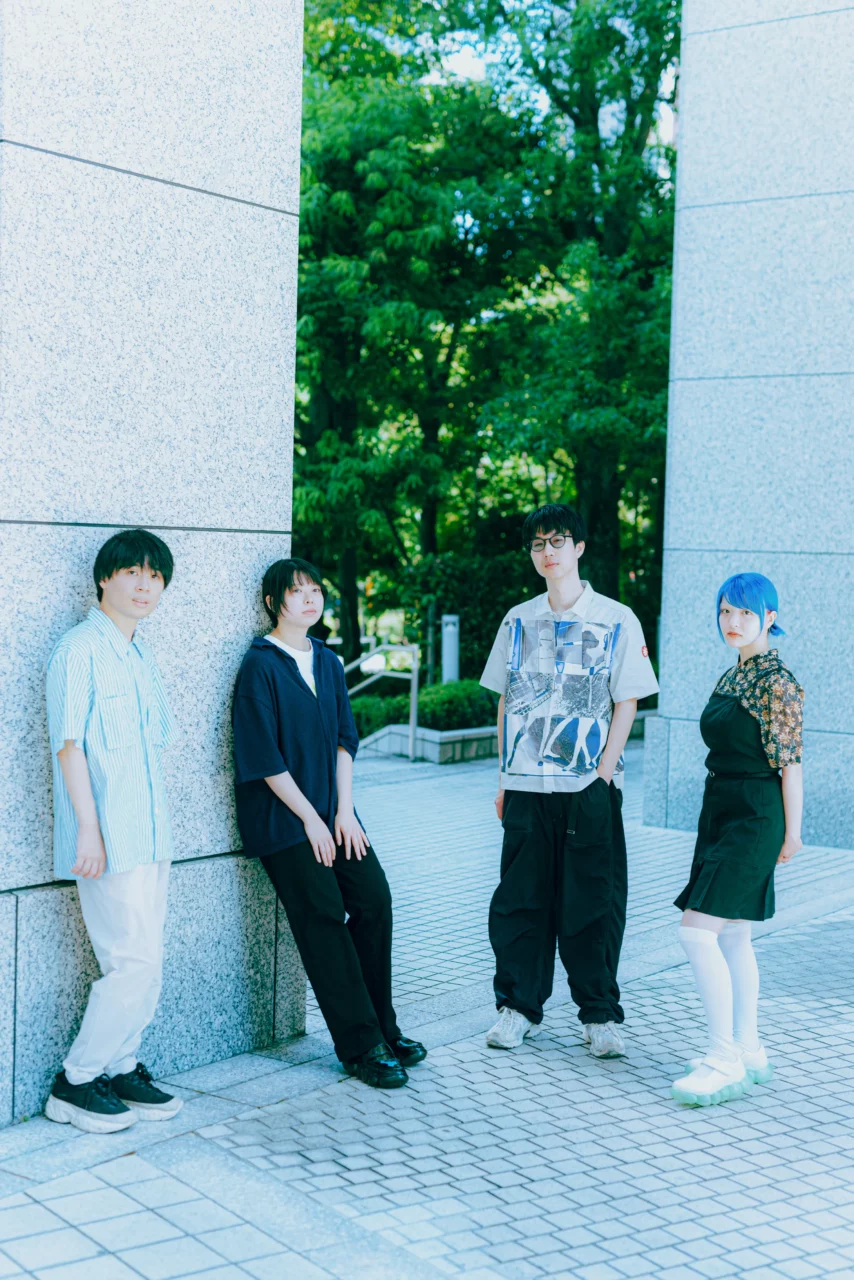
How about from Pasocom Music Club to LAUSBUB?
Nishiyama: Thank you. This might be the first time I’ve experienced this kind of atmosphere in an interview [laughs].
Shibata:
Well, even though there’s a generational gap between us and the two members of LAUSBUB, I’ve never felt like they’re younger or junior. I simply respect them as musicians.
I feel a sense of sympathy for their ‘making music as a duo,’ their unique musical perspective, and their strong will to create their own music. So my hope is for them to keep pushing forward, and as for the rest… I just hope they don’t push themselves too hard physically.
Takahashi: Thank you [laughs].
Shibata: Last year, when we all went to Hokkaido for an event and went to a tsukemen shop with Riko and Mei, both of them were so exhausted that they couldn’t eat at all. I was concerned about them at the time [laughs]. I know it’s a bit of a drag to act like a senior, but I thought about how I hoped they wouldn’t push themselves too hard, and I’m kind of remembering that now.
Nishiyama: This is something I feel while making music, but I believe it’s impossible to succeed in a niche genre in Japan through individual effort alone. It’s more about creating an environment where people with similar aspirations can work together, which is, in a sense, a survival strategy.
This approach will likely lead to more of the music I enjoy emerging and make things more interesting. That’s why I’ve consciously planned events and included various people in remix collections. I think there should be even more of this kind of collaboration.
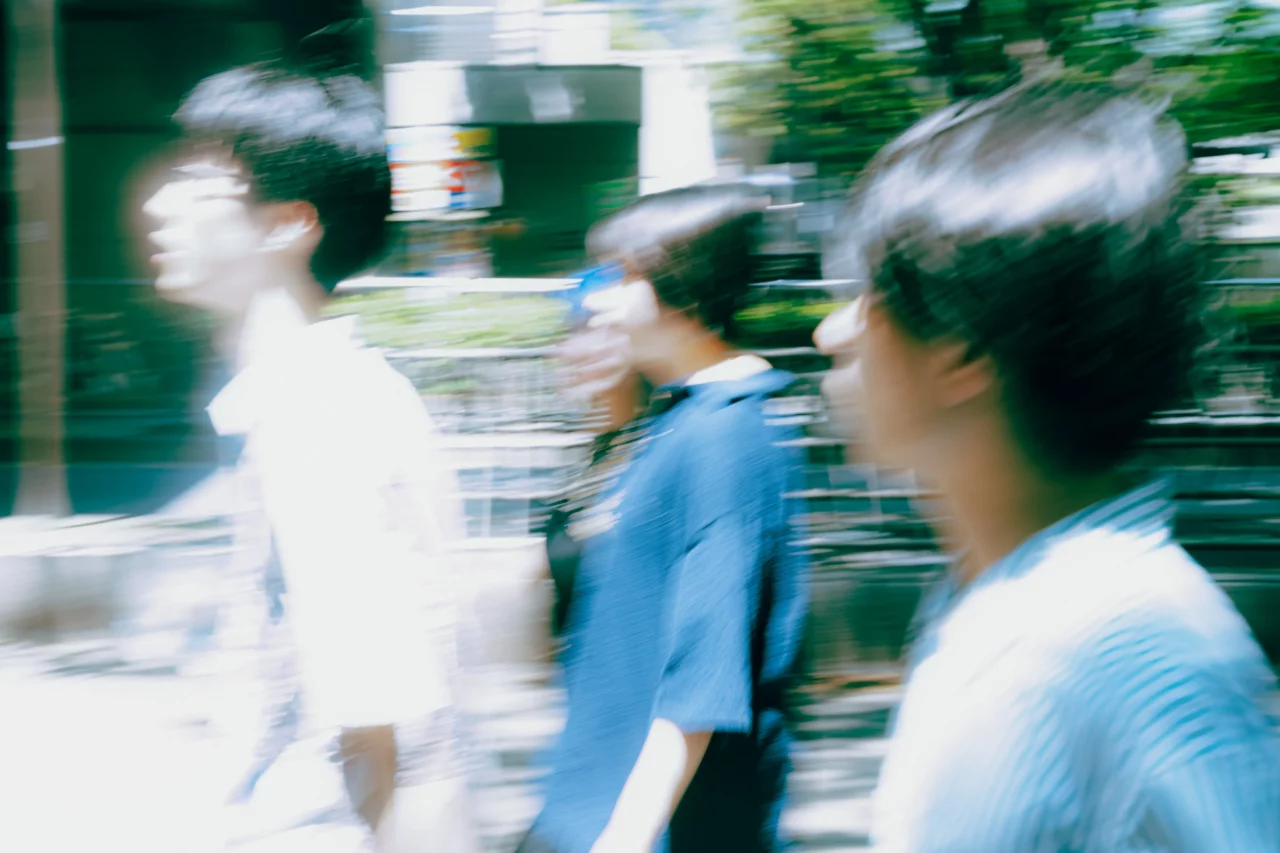
Nishiyama: Earlier, when Riko was talking about Yamada from the hatch, she mentioned the passion for doing something for the scene and for music. I can sense that same passion from LAUSBUB. Just like Shibata-kun, I don’t see LAUSBUB as juniors; I think of them as fellow musicians with whom I share a common goal. I hope we can work hard together.
LAUSBUB: Thank you very much!
And first of all, there’s the release party, right?
Nishiyama: We hope you’ll come; our livelihood depends on it [laughs].
Shibata: Maybe I should go all out and say, ‘Buy a ticket, and I’ll drink a bottle of hot sauce in one go!’ or something like that…
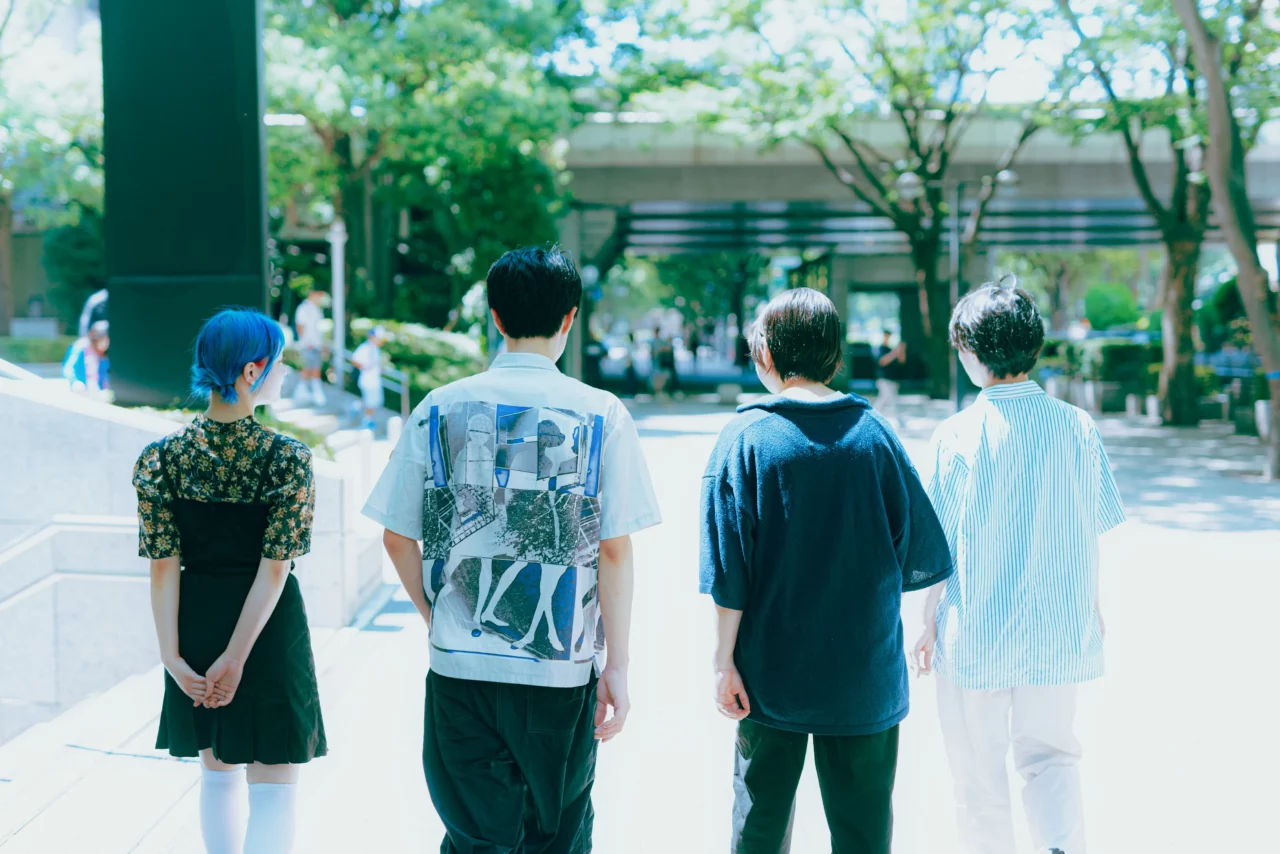
Pasocom Music Club – “Love Flutter”
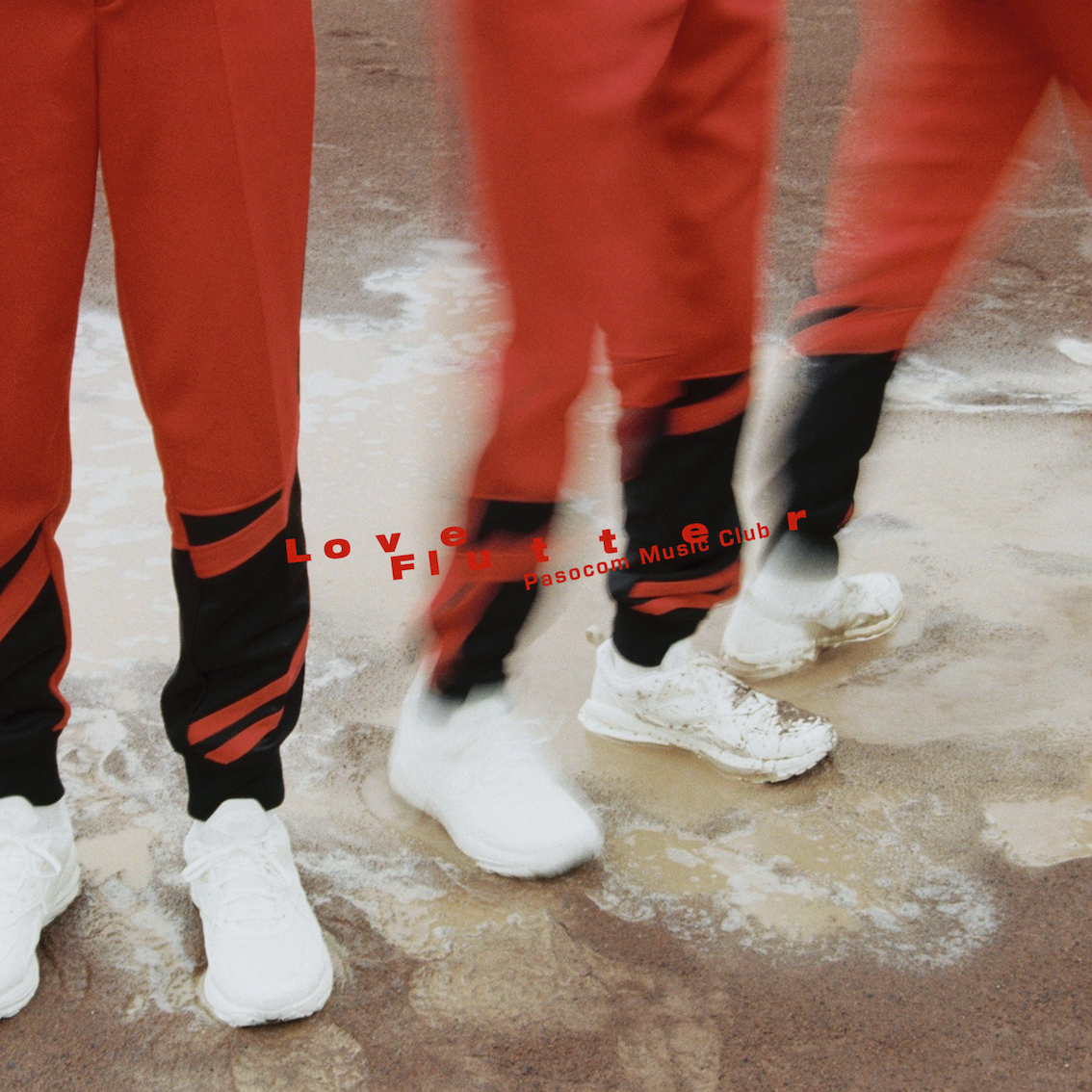
Released on Wednesday, August 21, 2024
Price: 3,000 yen (tax included)
1. Heart (intro)
2. Hello feat.
3. Fabric
4. Child Replay feat.
5. Yuragi feat. tofubeats
6. Observe feat.
7. Please me feat.
8. Boredom feat.
9. Drama feat.Mei Takahashi(LAUSBUB)
10. Memory of the moment
11. Colors feat.
12. Not a chance
13. Empty feat.Le Makeup
LAUSBUB “ROMP”
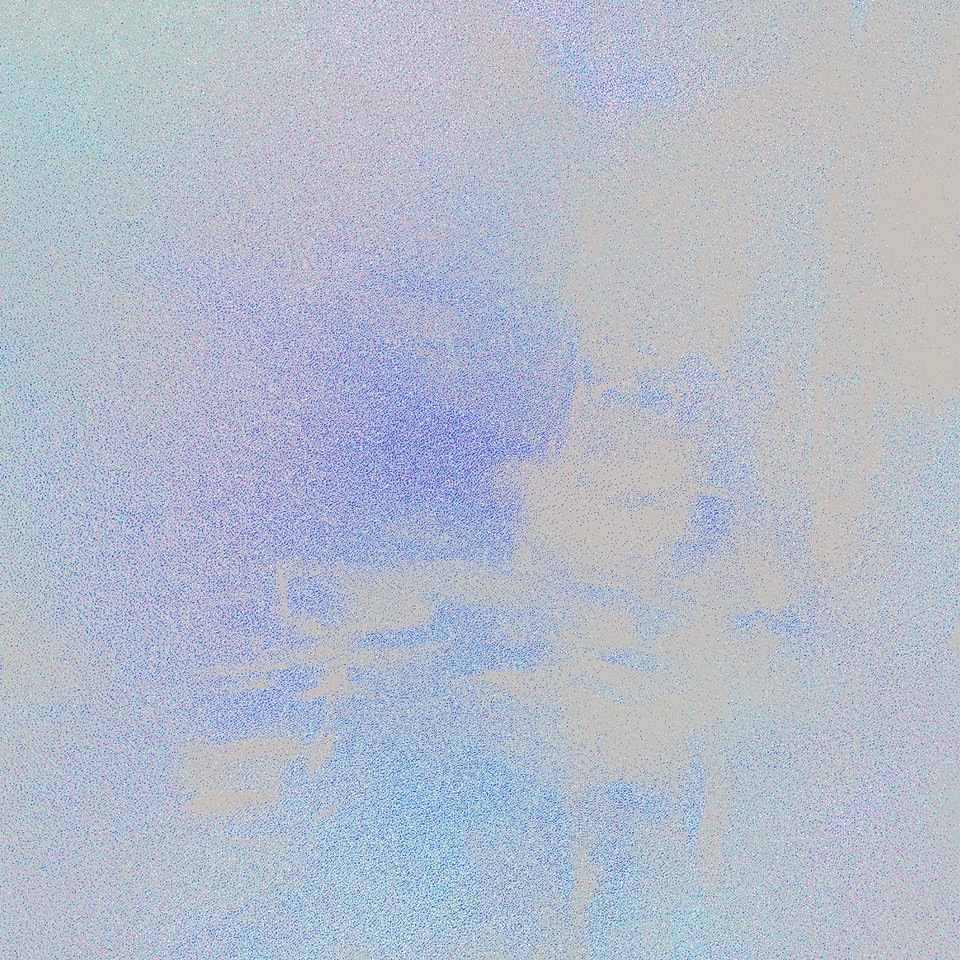
Released on Wednesday, July 24, 2024
Price: 2,750 yen (tax included)
1. Michi-tono-Sogu
2. spin
3. Telefon -2024 Session
4. Sweet Surprise
5. playground
6. Dancer in the Snow
7. 80 1 Hardy Ones
8. I SYNC
9. I SYNC
10. TINGLING!
LAUSBUB “Tour 2024「ROMP”
Thursday, September 12, 2024 stiffslack, Aichi, Japan
2024/9/13 (Fri) Yogibo HOLY MOUNTAIN, Osaka
2024/9/15 (Sun) Daikanyama UNIT, Tokyo
Friday, September 20, 2024 Sound Lab mole, Hokkaido
















